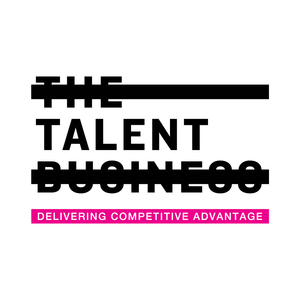
The War of the Worlds: Agencies and Creative Tech Battle for Innovative Leaders

In the seventies creativity was in the secure silos of film, TV and advertising, with few cross overs. As the likes of Apple and Google have multiplied and evolved, the number of brands that now populate the crossover between technology and creativity exploded. Many of these ‘creative tech’ businesses were founded by engineers and have their roots in performance marketing. They soon understood that creativity is a scalable consumer benefit with the potential to create lasting brand value, and they have actively gone out to hire individuals who understand how to foster and sell creativity to drive business results. Most importantly, however, Apple and Google have become a byword for best practice in product innovation and progressive marketing.
If you have Apple or Google
on your resumé, there’s a sense that (at least for now) you are future proofed. These organisations interact directly with
their consumers and learn more about each of them on a daily basis than a
packaged-goods company might hope to learn about an individual consumer in a
lifetime. Whilst FMCGs such as Unilever and Procter
& Gamble make a significant investment in research, Google has a deep real-time data-driven understanding of
consumers and an innate understanding of how to sell creativity that engages,
influences and motivates. It’s this real-time understanding, exploited through organisational structure and processes
geared around driving creativity, which enables it to innovate, as well as
produce and buy content at speed, which sets it apart in a marketing
context. Commercial creativity permeates
these organisations and is part of their inherent culture.
The aggressive expansion of these ‘creative tech’ brand owners has fuelled an exponential growth in the demand for business leaders and senior talent who understand the scalability of creativity and how to foster and leverage creativity for commercial success. The primary source of this talent has been the communications agency space, but the battle for leaders has been something of a one sided affair thus far, with the leading creative tech brand owners offering agency stars the opportunity to experience an innovation and content driven parallel universe that’s a million miles away from the traditional advertising agency space.
With
a small number of exceptions, creative agencies are struggling to re-invent
their business models in a faster moving, more content driven world, and, to be
blunt, agency leaders don’t believe they’ll learn much about progressive
marketing working with FMCG old establishment clients who expect agencies to
spend most of their time developing and pre-testing TV scripts. More often than not these agency stars join
creative tech businesses for less money than they’re making in their agency job
(although the stock based incentive plans are usually better) because their
primary driver isn’t money, it’s to future proof their career.
More
recently, this battle for talent has got even more confrontational, with many
of the traditional ‘old world’ brand owners trying to emulate Apple and
Google’s approach (to permeate creativity through their organisations, or at
least through their marketing functions). These old world FMCG brand owners haven’t fully grasped nuancing around the
structural and cultural changes they need to finesse in order to build an organisation
that has commercial creativity running through its DNA, and at a more basic
level, their marketing teams have not disrupted established (and outmoded) processes
for developing and buying creativity. But
they are going into battle for agency talent and they’re no longer hiring executives
whose agency careers have run out of road, as would have been the case back in
the day.
‘Creativity’ has never appeared higher up the attribute
ranking for corporate leadership talent than it does today. It
seemed novel (even back in 2010) when both IBM and EY released white papers
heralding the age of the ‘creative executive’, but it has a whole new
currency in a digital world thanks to the creative tech businesses it has
spawned. It’s increasingly an aptitude
that brand owners want to acquire as they seek to develop cultures that more
instinctively innovate and drive creativity for commercial gain. So much so, that the global executive search
firm I run is developing a new generation of competency-based tests that apply neuroscience to assess the
cognitive potency of creative leaders. We see the potential to apply whole
brain cognitive exercises developed by top neuroscientists and psychologists to
the specific challenges of hiring leadership talent for a broadly defined set
of creative businesses.
This war is far from
over. The very fact that agency leaders are so highly sought after tells us
something about the historic strengths of the agency space. Agencies now need to win some of this talent
back from the creative tech brand owners and, in so doing, secure what will be
the next generation of transformational leaders capable of reinventing the
agency model.
Gary Stolkin is the Global Chairmanand CEO of The Talent Business










